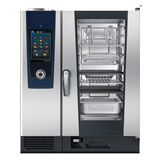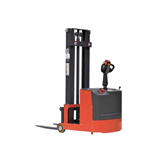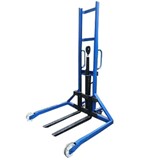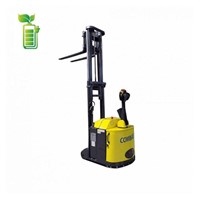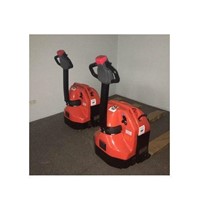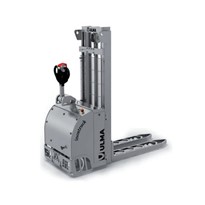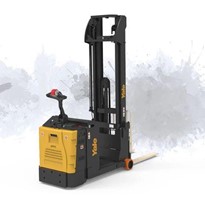In an effort to balance food and worker safety with productivity and quality, the Combi-CS has gained traction in warehouses across the country. Thanks to its patented, award-winning, multi-position tiller arm, the Combi-CS can navigate very narrow aisles whilst managing loads of up to 2,000kg – and because it is not classified as a forklift, does not require a license. Importantly, it’s battery-powered. Operators can say goodbye to three-point turns and difficult angles created by rigid forklifts.
The Combi-CS navigates these tight spots with ease, saving time for all. This design also offers maximum operator visibility while the tiller arm keeps the operator out of harm’s way. Combilift Country Manager Chris Littlewood says he couldn’t be prouder to satisfy multiple customer concerns in one simple product. “Once we recognised the industry’s need for a stacker that not only improved safety but was simple enough for any amateur operator, we knew it was our gap to fill,” he says. “This stacker really sums up what Combilift is about – we listen, we learn, and we give the people exactly what they want.”
In an industry that is short more than 170,000 workers, the Combi-CS can greatly benefit the Australian food supply chain. It is extremely easy to manoeuvre, increasing speed and efficiency for operators, and allowing businesses to get more product out the door per day.
This is especially important when product expiry dates loom over businesses and threaten to cost countless dollars. “It also enables a business to cope easily with seasonal demand by employing extra operators on for busy periods such as Easter or Christmas,” adds Littlewood. “Because it is designed for easy use and doesn’t require a forklift license, practically anyone can use it, so it will help during these busy times.” Across the country, Australia’s 2023 Skills Priority List (SPL) stated that 34 percent of Machinery Operators & Drivers jobs were in shortage, while a forklift operator shortage was most concentrated in South Australia.
To combat Australia’s obvious woes with the skills shortage, the simple and safe design of the Combi-CS means no formal forklift training is required for operation. Not only does this emphasise the true safety of the design, but it also cuts costs for businesses that would otherwise have to train more skilled staff. Naturally, the cost of these staff would be higher and so the cost benefits of the CS truly stack up. To emphasise its safe design, Littlewood has quipped, “virtually anyone within an organisation – from trainees to warehousing staff to the CEO – can operate one of these vehicles safely.” This is of vital importance in the tight confines of modern warehouses where amateur forklift drivers must take extra care.
The compact design of Combilift’s pedestrian stacker range means that businesses can redesign their floorplans for greater capacity – the trade-off being that forklift drivers must work in increasingly narrow aisles. Of course, any difficulty is removed by the rotating tiller arm, making navigation and control a breeze for even beginner operators. “The operator’s position allows a greater level of control over the products when moving them around, with up to four-way reach in even the narrowest aisles,” says Littlewood. “The forward visibility of the pedestrian reach vehicles greatly reduces the risk of incident in tight confines and ensures the vehicle is stress-free to operate.”
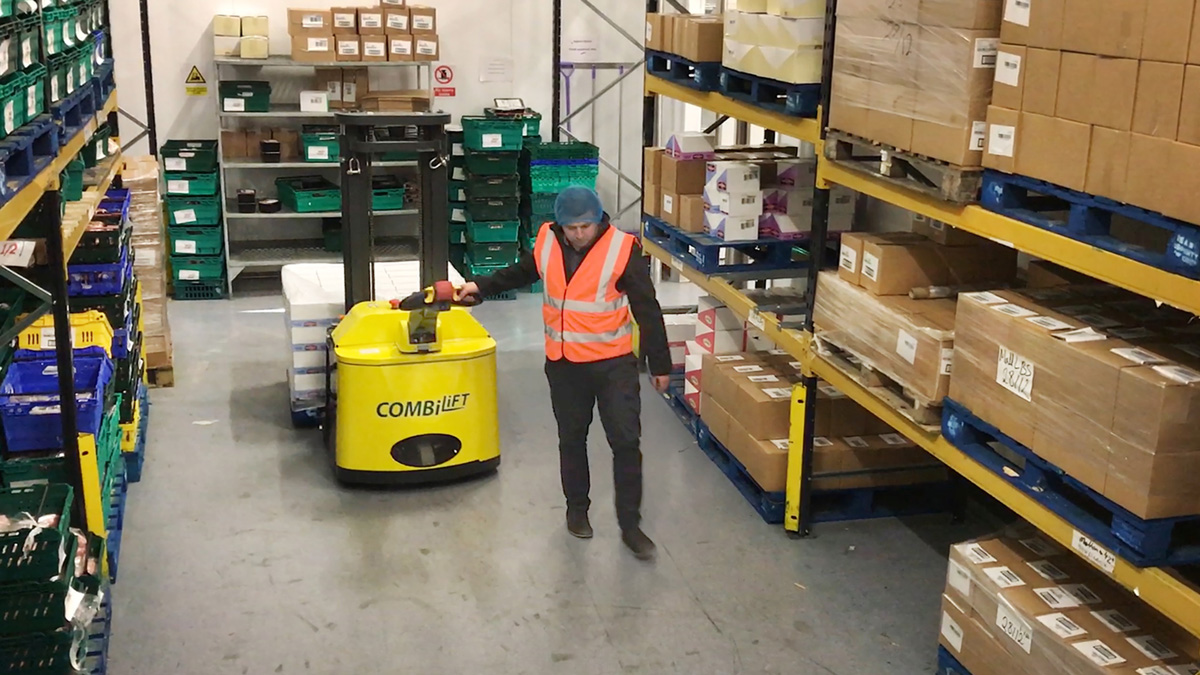
The Combi-CS is a one-of-a-kind design to save space and lives.
The Combi-CS: Features & Benefits
- Power steering
- Electric – uses AC motor technology
- Rear-wheel drive
- Patented multi-position tiller arm
- Load capacities from 1000-2000kg
- Lift height up to 2500mm
The increased safety of the Combi-CS is hardly just a nice-to-have either – Australian forklift incidents have been high of late. In 2022 across Victoria, WorkSafe saw 142 claims of injury caused by forklifts, while New South Wales recorded 1,538 forklift related incidents from 2017-2022. Multiple initiatives have been rolled out by the States’ health and safety authorities to curtail these statistics, but it remains to be seen if they have begun to diminish. Assuming such initiatives can’t completely stop incidents from occurring, Combilift has taken on the responsibility of designing safer machines.
As the company website reads, “No other manufacturer in the world can deliver the same level of customisation and adaptability or cater so effectively to the diverse needs of every individual customer.” Therefore, the Combi-CS was born. In fact, this unit was inspired by home improvement company, Bunnings, who were seeking a safer alternative for a forklift to fit with their needs. “Bunnings were looking for a customised machine that could do the work of a forklift but be operated by anyone on the floor. They wanted something that was intrinsically safe – in other words, would remove the risk of an operator being crushed or pinned by the vehicle,” says Combilift Design Engineer, Gavin Davidson. “Since its design more than 10 years ago, the rotating tiller arm has been rolled out for the world to enjoy. “
Davidson says it’s become one of Combilift’s most popular products – and for good reason. “Between the WR and the CS, we build 17 of them per week,” he says. “They’re a big part of what Combilift do and it’s all customised. “Anyone can go to big brand forklift manufacturer, and buy a forklift. But if you want one to work in a specific aisle or to handle a specific product with a specific attachment on it, that manufacturer won’t go near it. “At Combilift, we’ll take that on and customise the machine to suit whatever the customer’s needs are. You’ll hardly see two trucks that are the same unless they’re ordered by the same customer.” There are seemingly no bounds to the specificity of this customisability, as Combilift gives each customer an order sheet from which to pick and choose. “Bunnings is a really good example of an Australian customer customising their order,”
Davidson explains. “Their pedestrian stacker was specifically designed for their needs. Even between Bunnings Australia and New Zealand, they get two different specs of forklift – one being 1,500 kilograms and the other being 1,600.” Combilift only sees demand increasing for the CS and the wider pedestrian stacker range, as the food and beverage industry seeks to feed a growing population from a tightening warehouse floor market. Naturally, these industries are only expected to continue demanding more of their people and machinery. When they do, Combilift will continue to find new solutions to new problems as they arise.






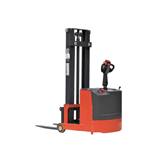
-160x160-state_article-rel-cat.png)



